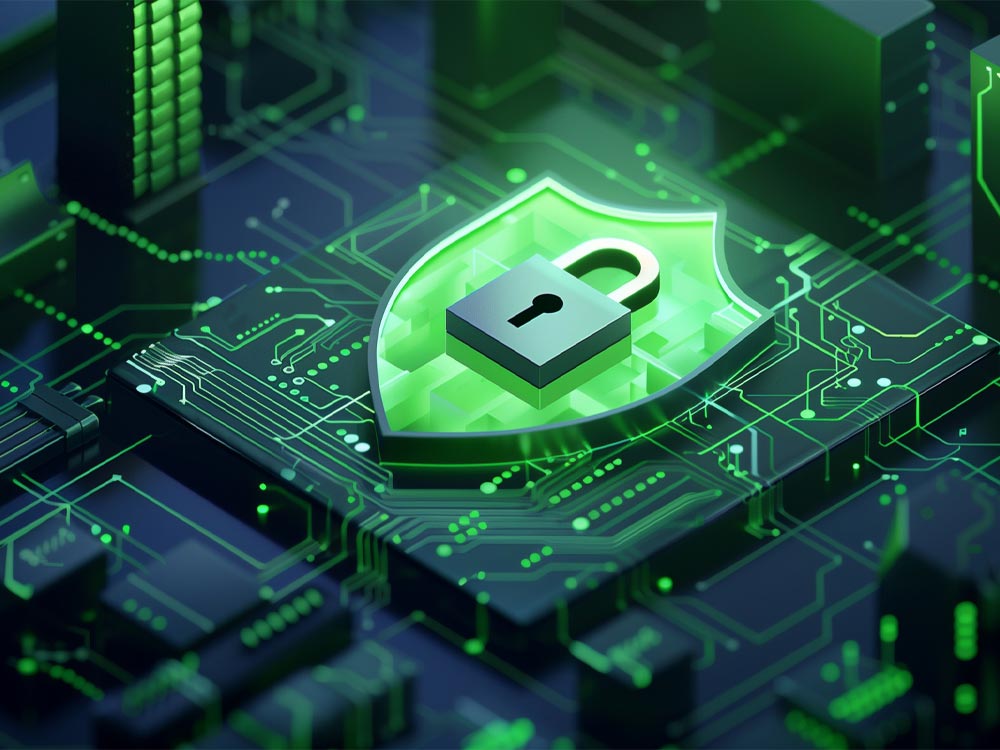Property management systems are an essential survival kit in this digital age. They play a critical role in increasing efficiency, better communication, and smooth management when it comes to managing rental and sales properties. In the modern world of property management, the secure handling of lease agreements, financial transactions, and tenant details is not only a necessity but also a legal obligation.
However, property management solutions do have their own set of responsibilities, of which Data Security and Privacy take the lead. For property managers, data related to clients, properties, and owners is sensitive for establishing trust and legal protocols.
Key Contents
- The Importance of Data Security and Privacy
- Key Data Security Measures
- Choosing a Secure Property Management Software

The Importance of Data Security and Privacy
1. Prevention of Cyber Attacks and Breaches
With digital development, cyber-attacks have become more advanced and almost every digital platform is prone to data breaches. A security breach may lead to:
- Modification of lease contracts,
- Exposure of confidential data, and
- Disruption of records.
Such attacks harm the property management business and cause tenants and clients to question the company's credibility.
Therefore, prioritizing security measures like real-time monitoring, multi-factor authentication and regular backups in property management software is essential in protecting the system and reducing these risks and threats. This also indicates that you as the company take the privacy of your clients seriously.
2. Compliance with Regulatory Requirements
The property management sector has to abide by certain regulatory requirements, like the California Consumer Privacy Act (CCPA) in the USA and the General Data Protection Regulation (GDPR) in Europe and many more.
The property management software you choose must follow these regulations with the help of mechanisms for data access and consent management. Such compliance not only sorts legal risks but also strengthens trust among the stakeholders.

3. Enhancing Operational Efficiency
Data security is crucial to maintaining the decorum of operational efficiency within real estate management. Effective and secure software solutions will facilitate the automation of workflows, provide real-time insights, and streamline routine administrative tasks to enhance property performance. By protecting integrity, property managers can improve tenant satisfaction, make well-informed decisions, and optimize resource allocation.
4. Securing Financial Transactions
Several property management systems enable online rent payments and other transactions to create ease. However, such transactions are prone to hacking, identity theft, and fraud if encryption protocols and secure payment gateway are absent.
Opt for a property management software that focuses on the security of its payment processing system, to make your and your client’s life more comfortable when it concerns finances.

Key Data Security Measures
1. Encrypted Data Storage
Encrypted data storage is a critical part of property management software security. It acts like a secret code that keeps the data safe. In case of any authorized access, the data remains protected and unreadable without decryption keys. The latest property software utilizes advanced encryption methods to safeguard the data.
2. Access Controls
Controlled access, is the second most important feature that makes tenant data accessible to only authorized personnel via role-based permissions. This reduces the chances of data breaches. For example, there are times when the property manager has different types of access from maintenance staff, due to which each user can only view what’s needed for their role. This feature ensures that the tenant’s data is safe and secure.
3. User Authentication
Another must-have feature which includes two-factor authentication. The employment of two-factor authentication in property management is vital for boosting data security.
With the help of 2 distinct methods which are a password and a code, 2FA provides an additional layer of protection against any unauthorized access.
This results in:
- Sensitive tenant and property information is protected.
- Less chances of data breaches.
- A strong defense system against possible cyber threats in property management.
4. Regular Software Updates
Constant updates are required, to keep the system active and secure from any vulnerabilities.
5. Data Minimization
Property management software offers data minimization, which includes the collection and storage of only relevant tenant information. This approach reduces the chances of sensitive data being at risk and restructures data management.
6. Data Backups
It is important to have essential data backups in case of any data loss due to hardware and cyberattack issues. These backups are normally stored offsite in the cloud, to ensure hassle-free data restoration in time of catastrophe.
7. Audit Trails
This includes a complete record of tenant data actions, displaying who accessed the data, when and what changes were made, etc. This improves accountability and transparency, as they are said to be digital records that help you monitor any suspicious activity.
Choosing a Secure Property Management Software
When choosing a property management software that offers data security and privacy, look for the following considerations:

a. Look for Security Certifications: Choose software providers that have security certifications, like ISO 27001, SOC 2, and HIPAA compliance.
b. Inquire About Security Practices: Study the security protocols, incident response plans, and data encryption methods of potential vendors.
c. Read Customer Reviews: Check reviews from other property management companies that focus on the vendor’s commitment to data security.
d. Data Transparency: Choose a data provider that is honest about data usage, collection, and sharing process.
e. Tenant Data Rights: Ensure that tenants have access to correct or delete their info via the software.
f. Scalability: Opt for software that is scalable and can grow as your business and portfolio expands.
g. Customer Support: Analyze the quality of customer support offered by the software, and ensure that security-related assistance is offered.
h. Budget: Analyze the cost of the software, such as implementation costs, licensing fees, and ongoing maintenance to see if you will face any budget constraints after choosing that specific software.
i. Security-Related Feedback: Look for reviews and testimonials that specifically mention the software provider's security measures and customer support in case of security incidents.
Explore how Onekode streamlined property management solutions here: Capstone Smart Property
Final Words,
Data security is not any random technical requirement but a critical pillar for executing successful property management operations. With strict security measures, educating stakeholders about viable practices, and being compliant with regulatory requirements, property management firms can reduce risks, improve operational efficiency, and protect tenant’s confidence and trust. Having a proactive approach to data security exhibits that property management software aims to be a catalyst for innovation in the industry.
Explore Related Links:
.png)








